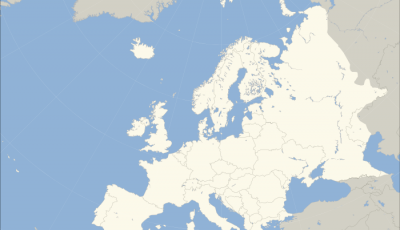[Guest Post] Blockchain; enhancing security, transparency and trust in the food supply chain
by Catherine Frankum
Blockchain for Transparency and Trust
Currently the food supply chain is often fragmented with companies using different systems and outdated technologies which make tracking across borders and different companies very difficult. Businesses are now looking to new technologies to prove to their consumers that their products can be trusted and as a business they are being transparent.
Blockchain has risen to the occasion with its decentralized security. It is a way to create digital trust as the information recorded cannot be tampered with or deleted. Information such as food origin, processing, transport and warehousing can all be recorded, secured and decentralized to guarantee the data can be trusted.
Consumers are becoming more involved in their purchases and are wanting to know more about the origins and the stories of their food. In a recent study conducted by Elementar, out of the 800 participants, 84% responded that they have checked the origins of products they purchase.
Businesses which adopt a platform for traceability not only are improving their traceability methods but they also become a more desirable brand for final consumers. When given the option to buy a product you know nothing about versus a product where you can see the history and guarantee of origin, which one would you choose?
Blockchain for Food Safety
Recent scandals and mistakes in the food industry have weakened the trust between consumers and brands. We are seeing a rise in contaminations and recalls. In 2018 CDC performed the most outbreak investigations per year than in the last 10 years.
When a contamination occurs, currently due to the lack of traceability and security in the food supply chain, it can take days, weeks, and even months to pinpoint the source and remove it from circulation. This happened last year with the E.coli contamination found in Romaine Lettuce. It took four months for the outbreak to be over and illnesses were recorded in 16 different states.
Blockchain is not going to put a stop to any type of contamination, but when a product is tracked, and backed by Blockchain technology, pinpointing the source of a contamination can be done in seconds. Once the source has been pinpointed retailers can remove only the contaminated batches, reducing the wastage of uncontaminated products as well as reducing businesses economic loss.
The Future of Blockchain for Food
With food trends for 2019 indicating that consumers still want to know more about the food they are consuming, it is predicted that we will see more platforms for traceability being implemented into businesses small and large. Already there are some major brands surfacing and large scale businesses such as Walmart are demanding the products they sell, such as lettuce, to be backed by Blockchain technology.

Catherine Frankum
Author Bio
Catherine is the Marketing and Public Relations manager at NutraSign. NutraSign is a traceability solution backed by Blockchain technology available to all participants of the food supply chain no matter their size. From New Zealand but now based in Spain, she believes that too often there are cases of contaminations and food adulterations and is working to promote Blockchain for a social focus.




![[Guest Post] The True Use Cases for Bitcoin and Its Role in Banking the Unbanked](https://coinreport.net/wp-content/uploads/2019/04/Ray-Youssef-Paxful-CEO-400x230.jpg)








KFC is 4th biggest food supply chain in the world at present. Present KFC is the 4th biggest food chain in the world. KFC is in more than 20,500 locations all around the world, and more than one lakh people are working in the KFC restaurants. Chicken stripes and chicken wings are very famous in the KFC restaurants. MY kfc experience is the official customer satisfaction survey conducted by kfc restaurant management on https://mykfcexperiencesurveys.com/. This survey is the proper way to collect the customer’s feedback. KFC restaurant management decided to improve its services by using the customer’s feedback; that’s why they are conducting this survey, and you have a chance to win chicken items for free by taking this survey.